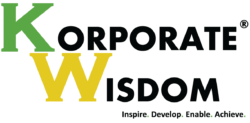Areas of Leadership Excellence.
Introducing our proprietary Leadership Development Framework, designed to unlock a manager’s full potential.



Description
Personal leadership is the foundation of effective leadership, encompassing a broad range of skills, traits, and practices that enable individuals to lead themselves and others effectively. It involves developing a strong sense of self, setting goals, and taking intentional action to achieve them. This includes self-awareness and self-management, effective communication and interpersonal skills, time management and prioritization, decision-making and problem-solving skills, emotional intelligence and resilience, adaptability and continuous learning, personal values and integrity, and accountability and responsibility. By cultivating these qualities, individuals can become role models, build trust, and demonstrate a commitment to personal and professional growth.
Essential Competencies:
- Self-Management
- Adaptability
- Integrity and Ethics
- Time and Task Management
- Structured Communication
- Trustworthiness
Description
Interpersonal leadership is about building and maintaining effective relationships, fostering a positive work culture, and inspiring others to work towards a common purpose. It requires understanding the needs, perspectives, and motivations of others and using that understanding to motivate, influence and support them. This involves effective communication and active listening, empathy, understanding and valuing diversity, building trust, rapport and strong relationships, conflict resolution and negotiation, coaching & mentoring, developing others, team building and collaboration, stakeholder engagement and management, and cultural competence and sensitivity. By mastering these skills, leaders can create an environment where people feel valued, empowered, and inspired to do their best work.
Essential Competencies:
- Relationship Building
- Collaboration and Teamwork
- Empathy
- Inclusion
- Conflict Management
- Developing Others
- Trustworthiness
Description
Intrapreneurial leadership is about embracing an entrepreneurial mindset within an organization, driving innovation, growth, and progress. It involves challenging the status quo, pushing boundaries, and continuously improving processes and products. This requires creativity, experimentation, risk-taking, identifying and capitalizing on opportunities, developing and implementing new ideas and solutions, collaborating and influencing across boundaries, adapting to change and ambiguity, learning from failure and continuous improvement, and building and leading high-performing teams. By adopting this mindset, leaders can create a culture of innovation, drive growth, and help their organization stay ahead of the curve.
Essential Competencies:
- Creativity and Innovation
- Empowering Others
- Adaptability and Resilience
- Strategic Thinking
- Networking
- Result Orientation
- Customer Focus




Learning Atoms
Unlock the power of focused learning with our Learning Atoms - concise, virtual training sessions that pack a punch!
These 90-120 minute instructor-led sessions are packed with interactive and engaging content, carefully crafted to deliver impactful results. Our Learning Atoms are perfect for professionals who need to upskill quickly, without sacrificing quality or effectiveness. With a focus on practical application and real-world scenarios, Learning Atoms ensure that learners can apply their new knowledge and skills immediately, making a tangible impact in their work and organization.
Description
Learn practical techniques and tools to effectively manage time, prioritize tasks, and enhance productivity.
Learning Objectives
- List common time management challenges and their impact on productivity.
- Identify and apply effective time management strategies.
- Learn tools for prioritization and task organization.
Description
Enhance abilities to handle feedback gracefully, incorporating feedback for personal and professional development.
Learning Objectives
- Develop resilience and openness to receiving feedback.
- Cultivate the mindset and behaviors eesential to interpret feedback constructively.
- Implement strategies for action planning based on feedback received.
Description
Explore frameworks for delivering constructive feedback that drives performance improvement and goal achievement.
Learning Objectives
- Discuss the importance of structured feedback in achieving desired outcomes.
- Learn frameworks for structuring feedback conversations.
- Practice giving feedback that motivates and fosters growth.
Description
Develop skills to navigate challenging conversations effectively, addressing sensitive topics with empathy and clarity.
Learning Objectives
Learn and apply the Difficult Conversations framework to:
- Before: Prepare effectively for difficult Conversation.
- During: Communicate for results and collaboration.
- After: Essential post conversation fundamentals to sustain results
Description
Equip with skills to lead teams effectively through organizational change, fostering resilience and commitment among team members.
Learning Objectives
- Examine the stages of change and the associated challenges for individuals.
- Develop strategies for leading change effectively across all its stages.
- Build skills to support team members and manage resistance during transitions.
Description
Learn to communicate goals in a way that inspires intrinsic motivation and commitment among team members.
Learning Objectives
- Review the principles of intrinsic motivation and its impact on goal achievement.
- Recognize how goals can be communicated to convey purpose.
- Learn techniques for fostering ownership and engagement to achieve goals.
Description
Foster a culture of psychological safety within teams, promoting trust, collaboration, and innovation.
Learning Objectives
- Review the concept of psychological safety and its importance in team dynamics.
- Identify barriers to psychological safety and strategies to overcome them.
- Learn what you can do (as leaders/managers) to boost psychological safety at work
Description
Master techniques for effective communication in remote or distributed teams, leveraging asynchronous methods to enhance collaboration and productivity.
Learning Objectives
- Explore the benefits and challenges of asynchronous communication.
- Learn strategies for asynchronous collaboration and team engagement.
- Practice effective communication tools and platforms for remote teams.
Description
Develop the skills necessary to challenge assumptions and foster innovative thinking to achieve breakthrough results.
Learning Objectives
- Recognize the impact of assumptions on decision-making and problem-solving.
- Recognize some common heuristics and biases that lead to assumptions.
- Learn techniques to challenge assumptions and encourage creative thinking.
Description
Explore the foundational principles of adaptive leadership, enhancing the ability to thrive in dynamic and evolving environments.
Learning Objectives
- Recognize the characteristics and importance of adaptive leadership.
- Review different leadership styles that you can adopt to effectively manage diverse team members.
- Learn to leverage adaptability to drive team member’s performance & growth.
Description
Master the art of delegation, understanding its importance, and learning effective delegation techniques to empower teams and drive results.
Learning Objectives
- Explore the benefits and challenges of delegation in leadership roles.
- Review the delegation process and its impact on team performance.
- Learn strategies for effective task assignment and governance for successful outcomes.
Description
Explore best practices for designing and implementing effective reward and recognition strategies that boost morale and performance within teams.
Learning Objectives
- Recognize the importance of reward and recognition in fostering motivation and engagement.
- Review the salient features of effective recognition practices.
- Implement techniques for personalized and impactful recognition.
Description
Develop emotional intelligence skills to enhance interpersonal relationships, communication, and overall effectiveness in the workplace.
Learning Objectives
- Learn the components and benefits of emotional intelligence in professional settings.
- Develop self-awareness and empathy to navigate workplace relationships.
- Apply emotional intelligence to improve teamwork and leadership effectiveness.
Training Workshops
Our Instructor Led Training Workshops offer immersive, interactive learning experiences that address all key leadership competencies. Available in face-to-face and virtual formats, these one or two day programs provide a unique opportunity for leaders to develop new skills, share experiences, and learn from each other. With a proven track record of delivering impactful results, our workshops incorporate dynamic learning methods to ensure learners can apply new knowledge and skills in a supportive environment. By investing in our workshops, organizations can enhance the capabilities of their leadership teams, address specific business challenges, and drive long-term success.
- Personal Leadership
- Interpersonal Leadership
- Intrapreneurial Leadership

- 1 or 2-Day
Time & Task Management
- Develop prioritization skills to effectively manage tasks based on urgency and importance, ensuring that critical deadlines are met and resources are allocated efficiently.
- Implement time management techniques such as time blocking and prioritization frameworks to optimize productivity and minimize procrastination.
- Develop assertiveness skills, including the ability to confidently and respectfully say "no" when necessary to manage workload and maintain focus on key priorities.
- Learn strategies for balancing workload by setting realistic goals and breaking tasks into manageable steps, fostering a sense of accomplishment and motivation.
- Utilize effective delegation methods to empower team members, enhance overall productivity, and free up time for higher-priority tasks.

- 1-Day
Stress Management & Resilience
- Identify common stress triggers and apply practical techniques such as, mindfulness, self-awareness, and physical relaxation exercises to reduce stress levels and promote well-being.
- Build resilience by developing coping strategies to navigate challenging situations, bounce back from setbacks, and maintain focus and productivity during stressful periods.
- Enhance emotional regulation skills to manage pressure and maintain composure in high-stress environments, fostering a positive work culture and boosting team morale.
- Foster a supportive work environment by promoting mental health awareness, encouraging open communication, and providing resources for stress management and self-care.
- Implement practices to improve focus, enhance clarity of thought, and cultivate a balanced perspective amidst professional demands and uncertainties.

- 2-Day
Emotional Intelligence for Leaders
- Enhance self-awareness by recognizing personal strengths, weaknesses, and emotional triggers, leading to greater authenticity and self-confidence in leadership roles.
- Develop empathy to build stronger relationships and enhance team dynamics, fostering a collaborative and inclusive work environment based on mutual understanding and respect.
- Apply emotional intelligence to navigate conflicts and resolve interpersonal challenges constructively, promoting harmonious relationships and effective teamwork.
- Cultivate emotional resilience to lead with authenticity and integrity, inspiring trust and resilience among team members during challenging times.
- Improve communication skills by leveraging emotional intelligence to convey messages with empathy, clarity, and impact.

- 1-Day
Building Your Personal Leadership Brand
- Define personal values, strengths, and professional goals to cultivate a distinctive leadership brand that embodies authenticity, vision, and purpose, aligning with organizational objectives and inspiring others.
- Craft a compelling personal narrative and elevator pitch that communicates leadership qualities, expertise, and a unique value proposition to stakeholders, inspiring confidence and trust in leadership capabilities.
- Develop a strategic online presence by leveraging social media and professional networks to share thought leadership content, engage with industry peers, and establish credibility as a visionary leader.
- Align the personal leadership brand with organizational values and mission to reinforce cultural alignment, inspire employee commitment, and drive collective engagement towards achieving shared goals and initiatives.

- 1 or 2-Day
Problem Solving
- Apply a structured problem-solving framework to analyze different types of issues/problems and recognise the best suited solutions, based on complexity.
- Develop creative thinking skills to generate innovative solutions to business challenges, fostering a culture of continuous improvement and adaptation.
- Collaborate effectively with cross-functional teams to gather diverse perspectives, leverage collective expertise, and implement problem-solving strategies that address multifaceted issues.
- Evaluate risks and benefits associated with alternative solutions using data-driven analysis and scenario planning to make informed and strategic decisions.
- Implement continuous improvement practices based on lessons learned from problem-solving experiences, driving efficiency, and effectiveness in organizational processes.

- 1 or 2-Day
Decision Making
- Understand different decision-making models and frameworks to evaluate options, assess risks, and make informed choices aligned with organizational objectives.
- Develop intuition and judgment to navigate complex decision scenarios, leveraging both analytical insights and intuitive understanding of contextual factors.
- Apply data analysis and critical thinking skills to gather relevant information, evaluate alternatives, and assess potential outcomes to support decision-making processes.
- Lead decision-making processes that engage stakeholders, facilitate consensus-building, and align with organizational values and strategic priorities.
- Apply ethical considerations and professional integrity in decision-making, ensuring transparency, fairness, and accountability in organizational governance.

- 1-Day
Coping with Change
- Understand the stages of change and strategies to navigate transitions effectively, including communication techniques to manage expectations and foster acceptance.
- Foster a positive attitude towards change by promoting resilience, adaptability, and proactive engagement within teams and across the organization.
- Implement change management initiatives to mitigate resistance and leverage opportunities for innovation and growth during periods of transition.
- Communicate effectively to build trust, clarify objectives, and address concerns related to change management, ensuring transparency and alignment with organizational goals.
- Lead by example in embracing change, demonstrating flexibility, and championing continuous improvement initiatives to drive organizational success amidst evolving landscapes.

- 1-Day
Strategic Thinking
- Develop a strategic mindset to envision long-term goals, identify market opportunities, and anticipate industry trends to inform strategic planning and decision-making.
- Analyze market dynamics and competitive landscapes to assess market positioning, identify strategic advantages, and capitalize on emerging opportunities.
- Translate strategic goals into actionable plans and initiatives, aligning tactical activities with organizational objectives and resource allocation.
- Foster innovation and business growth through strategic initiatives, including product development, market expansion, and partnership strategies.
- Lead strategic decision-making processes that prioritize long-term sustainability, stakeholder engagement, and value creation for the organization.

- 1-Day
Structured Thinking and Articulation
- Organize thoughts and ideas into coherent frameworks for effective communication, ensuring clarity, logical flow, and relevance in both verbal and written presentations.
- Improve clarity and conciseness in verbal and written communication by refining articulation skills and adapting messaging to diverse audiences and contexts.
- Develop persuasive presentation skills to effectively influence and inspire others, leveraging storytelling techniques, visual aids, and compelling narratives.
- Enhance critical thinking skills to effectively analyze information, evaluate arguments, and synthesize insights to support strategic decision-making and problem-solving.
- Communicate complex ideas in a structured and engaging manner, leveraging structured thinking techniques to convey insights, recommendations, and strategic plans effectively.

- 1-Day
Leading Hybrid Teams
- Develop strategies to foster collaboration and build cohesive team dynamics among remote and on-site team members.
- Implement effective communication practices to ensure clarity, alignment, and engagement in a hybrid work environment.
- Facilitate inclusive decision-making processes that promote participation and commitment from dispersed team members.
- Manage team performance and productivity by leveraging technology and flexible work arrangements to accommodate the needs of hybrid teams.
- Address challenges unique to hybrid teams, such as time zone differences, changed nature of conflicts, changes in conflict resolution dynamics and varying communication preferences.
- Foster a culture of trust, accountability, and autonomy to support the success of hybrid work arrangements to promote a positive work environment.
- Develop leadership agility to adapt management styles and approaches based on team composition and work context.

- 2-Day
Leading Cross-Cultural Teams
- Enhance cultural intelligence to navigate and leverage diverse perspectives within multicultural teams.
- Develop cross-cultural communication skills to minimize misunderstandings and promote effective collaboration across cultural boundaries.
- Foster inclusivity and respect for cultural diversity to build a cohesive and high-performing cross-cultural team.
- Adapt leadership strategies to accommodate cultural differences and foster inclusion and mutual understanding.
- Address cultural sensitivities and norms to ensure respectful and harmonious interactions among team members.
- Implement strategies to capitalize on the strengths of diverse teams and leverage cultural differences as a competitive advantage.

- 1 or 2-Day
Managing Stakeholders
- Identify key stakeholders and their expectations to develop tailored communication and engagement strategies.
- Build influential relationships with stakeholders through effective communication, transparency, and proactive stakeholder management.
- Anticipate and address stakeholder concerns and priorities to align initiatives with organizational objectives and stakeholder interests.
- Utilize stakeholder mapping techniques to prioritize engagement efforts and resource allocation.
- Implement stakeholder engagement plans to gather feedback, build support, and manage expectations throughout project lifecycles.
- Communicate project progress, risks, and outcomes to stakeholders in a clear, concise, and persuasive manner.
- Resolve stakeholder conflicts and negotiate competing priorities to achieve consensus and drive project success.

- 2-Day
Being a Leader Coach
- Develop the skills to empower team members, promote growth, and enhance performance through impactful
- Apply active listening and questioning techniques to support and guide individuals in achieving personal and professional development goals.
- Foster a coaching culture that encourages continuous learning, feedback, and self-reflection among team members.
- Build trust and rapport with coached team members to create a safe and supportive environment for personal and professional growth.
- Adopt a coaching style to successfully manage a variety of Manager – Team interactions in a way that promotes autonomy and unlocks potential.

- 1-Day
Delivering Feedback Effectively
- Develop the ability to deliver constructive feedback that inspires growth, improves performance, and strengthens relationships.
- Apply feedback models and techniques to ensure clarity, specificity, and relevance in feedback delivery.
- Create a feedback culture that promotes openness, trust, and continuous improvement within teams.
- Tailor feedback approaches to individual preferences and communication styles for maximum impact and receptiveness.
- Address defensiveness and resistance to feedback, recognizing what causes these reactions and how ‘coaching’ can be leveraged to boost acceptance and change.
- Follow up on feedback discussions with actionable steps and support to facilitate development and goal attainment.

- 1 or 2-Day
Building Trust-Based Relationships
- Develop trust-building strategies to establish credibility, authenticity, and reliability in professional relationships.
- Foster open and transparent communication to cultivate trust and collaboration among team members and stakeholders.
- Demonstrate integrity and consistency in actions and decisions to build trust and credibility over time.
- Address trust barriers and misconceptions through proactive communication and relationship-building efforts.
- Engage in active listening and empathy to understand and validate the perspectives and needs of others.
- Create opportunities for team bonding, shared experiences, and collaboration to strengthen interpersonal connections.
- Resolve conflicts and misunderstandings promptly and respectfully to reinforce trust and mutual respect among team members.

- 1 or 2-Day
Engaging & Retaining Talent
- Understand the unique characteristics and preferences of Generation Z employees entering the workforce, including their expectations for autonomy, purpose, and skill development.
- Explore the impact of VUCA dynamics on talent retention and develop adaptive strategies to foster resilience, innovation, and growth within teams.
- Implement autonomy-building initiatives to empower employees, promote ownership, and enhance job satisfaction and commitment.
- Develop talent mastery programs that prioritize continuous learning, skill development, and career growth aligned with individual aspirations and organizational objectives.
- Design and implement effective recognition and rewards (R&R) programs that acknowledge contributions, celebrate achievements, and reinforce desired behaviors within the team.
- Identify and leverage career anchors—such as purpose, growth opportunities, and work-life balance—to align individual motivations with organizational culture and retention strategies.
- Utilize stay interviews and feedback mechanisms to gather insights, address evolving needs, and proactively enhance engagement and retention initiatives.

- 1-Day
Having Difficult Conversations
- Develop skills to initiate and navigate challenging conversations with empathy, confidence, and professionalism.
- Foster a growth mindset to view difficult conversations as opportunities for learning and relationship-building.
- Prepare effectively by defining clear objectives and anticipating potential responses and reactions.
- Demonstrate adaptability to navigate unexpected challenges or emotional reactions during conversations.
- Collaborate on solutions and follow-up actions to address issues raised during difficult conversations and promote resolution.
- Evaluate outcomes and reflect on lessons learned to improve future interactions and communication effectiveness.

- 1-Day
Managing Conflict
- Identify sources of conflict and understand underlying causes to address conflicts proactively and constructively.
- Foster a team culture of constructive conflict management by promoting open communication and conflict resolution skills within teams.
- Apply conflict resolution strategies and negotiation techniques to manage disagreements and reach mutually beneficial outcomes.
- Facilitate productive discussions and mediate conflicts to restore relationships and promote collaboration.
- Encourage empathy, perspective-taking, and compromise to de-escalate conflicts and build consensus.
- Implement conflict prevention measures and proactive communication strategies to minimize dysfunctional conflicts.

- 2-Day
Building a Winning Team
- Apply adaptive leadership approaches to support teams through different stages of development and promote continuous improvement in team dynamics and effectiveness.
- Establish clear and measurable team goals to ensure alignment among team members.
- Recognize and mitigate groupthink tendencies to promote diverse perspectives, creativity, and innovative problem-solving within the team.
- Foster psychological safety by creating an environment where team members feel valued, respected, and comfortable taking interpersonal risks.
- Empower team members by delegating authority, promoting autonomy, and encouraging initiative to drive ownership and accountability.
- Implement conflict resolution techniques and communication strategies to navigate challenges, build cohesion, and foster positive team dynamics.
- Utilize effective performance measurement methodologies and provide balanced feedback to promote individual and team growth.
- Cultivate collaboration, trust, and accountability to establish team norms and promote mutual support among team members.
- Empower team members to leverage individual strengths, promote innovation, and achieve high performance through synergy.
- Implement strategies to celebrate successes and recognize achievements to build team spirit and motivation.

- 1-Day
Leadership Presence & Impact
- Build a personal brand that reflects leadership values, vision, and impact within the organization and industry.
- Develop self-awareness and adaptability to navigate different leadership contexts and challenges.
- Enhance communication effectiveness through persuasive storytelling, compelling presentations, and impactful messaging.
- Project confidence, authenticity, and resilience in high-pressure and high-stakes situations.
- Develop executive presence and gravitas to inspire confidence, credibility, and influence as a leader.
- Lead with integrity, empathy, and purpose to inspire and motivate others towards shared goals and aspirations.

- 1 or 2-Day
Customer First
- Identify customer needs and expectations through market research, feedback analysis, and customer interaction to drive innovation and enhance customer experience.
- Develop customer-centric strategies and solutions that align with organizational goals, values, and market trends to gain a competitive edge.
- Foster a culture of customer advocacy and responsiveness across the organization by empowering employees to prioritize customer satisfaction.
- Implement feedback mechanisms and continuous improvement initiatives based on customer insights to refine products, services, and processes.
- Build strong relationships with customers and stakeholders through effective communication, personalized interactions, and proactive problem-solving to drive business growth and loyalty.

- 1 or 2-Day
Leading Change
- Inspire and motivate teams to embrace change and navigate uncertainty with resilience by providing a compelling vision and rationale for change.
- Develop change management strategies that promote innovation and adaptability, involving employees in the change process to foster ownership and commitment.
- Foster a culture of experimentation and learning to drive continuous improvement, encouraging team members to test new ideas and learn from failures.
- Lead by example and communicate the vision and benefits of change effectively, addressing concerns and leveraging opportunities for growth.
- Empower employees to contribute ideas and solutions for organizational evolution, recognizing and celebrating innovation and creativity.

- 2-Day
Nurturing Talent & Performance
- Develop coaching and mentoring programs to empower employees and foster innovation, providing personalized development plans aligned with career aspirations.
- Implement talent development strategies aligned with organizational objectives, focusing on skills enhancement, cross-functional exposure, and leadership development.
- Drive performance management processes that promote accountability and growth, setting clear expectations, providing timely feedback, and recognizing achievements.
- Cultivate a culture of continuous learning and skill development to drive adaptation, offering learning opportunities, workshops, and knowledge-sharing platforms.
- Recognize and reward high performance to motivate and retain top talent, providing career advancement opportunities and meaningful incentives.

- 1-Day
Setting and Communicating Goals for Results
- Define clear and measurable goals that align with strategic priorities and customer needs, ensuring SMART (Specific, Measurable, Achievable, Relevant, Time-bound) goal setting.
- Communicate goals effectively to ensure understanding and alignment across teams, leveraging multiple communication channels and fostering two-way dialogue.
- Monitor progress, provide constructive feedback, and adjust goals to achieve desired outcomes, promoting agility and flexibility in goal management.
- Foster a results-oriented culture focused on delivering value and exceeding expectations, celebrating milestones and achievements along the way.
- Develop strategies to optimize resources and prioritize initiatives based on impact, balancing short-term wins with long-term strategic objectives.

- 1-Day
Art of Delegation
- Master the art of delegation to empower and develop team members' skills and capabilities, matching tasks with individual strengths and growth areas.
- Build trust and accountability through effective delegation and feedback mechanisms, providing clear instructions, timelines, and performance expectations.
- Balance autonomy with guidance and support to drive innovation and initiative, fostering ownership and creativity among team members.
- Implement delegation strategies that optimize team performance and productivity, promoting collaboration and cross-functional cooperation.
- Create opportunities for growth and development through delegated responsibilities, encouraging continuous learning and skill enhancement.

- 1-Day
Balancing Empathy With Results
- Cultivate empathy and emotional intelligence to build strong relationships and trust, understanding and respecting individual perspectives and experiences.
- Balance compassion with accountability to drive performance and achieve strategic objectives, fostering a supportive yet results-oriented team culture.
- Develop conflict resolution skills to navigate challenges and foster collaboration, promoting open dialogue and constructive problem-solving.
- Foster a culture of inclusivity and respect, promoting psychological safety and well-being, ensuring every voice is heard and valued.
- Communicate expectations and provide support that inspires and motivates team members, promoting engagement, commitment, and a sense of purpose.

- 2-Day
Delivering High Performance
- Implement strategies to maximize individual and team performance, productivity, and efficiency, leveraging strengths and addressing development needs.
- Foster a culture of excellence and continuous improvement to achieve strategic goals, promoting a growth mindset and learning-oriented approach.
- Develop resilience and adaptability to thrive in dynamic and challenging environments, nurturing a positive and proactive team mindset.
- Set high standards for quality and results, driving accountability and ownership among team members through clear expectations and feedback.
- Implement feedback mechanisms and performance management processes to drive growth and development, recognizing achievements and addressing performance gaps.

- 1-Day
Building Empowered Teams
- Create an environment of empowerment, trust, and accountability to foster innovation and creativity, encouraging team members to take ownership and initiative.
- Develop collaborative team structures and processes that promote autonomy and ownership, leveraging diverse talents and perspectives.
- Provide mentorship and support to build high-performing and empowered teams, fostering professional growth and career development.
- Foster a culture of creativity and experimentation, encouraging new ideas, and initiatives to drive continuous improvement and adaptation.
- Empower team members to take initiative, make decisions, and drive change, celebrating autonomy and collective achievements.

- 2-Day
Building a High Performing Culture
- Cultivate a culture of excellence, collaboration, and continuous improvement within the organization, aligning values and behaviors with strategic goals.
- Implement recognition and reward systems that reinforce desired behaviors and outcomes, celebrating achievements and promoting a positive work environment.
- Promote transparency and open communication to foster trust and engagement, ensuring alignment and clarity across teams.
- Develop strategies to optimize team dynamics and promote a positive work environment, fostering resilience and adaptability in response to challenges.
- Drive cultural transformation through leadership actions and initiatives, inspiring commitment, and alignment with organizational vision and values.
* Tailored to meet diverse learning needs and on-ground challenges across managerial levels, all our programs are available in three versions: New Managers, Seasoned Managers, and Senior Leaders.
Each version is thoughtfully designed to cater to specific role-relevant learning needs and experience levels to ensure impactful development at every stage of managerial growth.
Learning Journeys
“Learning is action, not absorption.”
Our end-to-end Learning Journeys for senior leaders, middle managers, and first-time managers are carefully crafted to up-skill staff in all role-relevant behavioral competencies. These unique journeys incorporate a blend of interactive trainings, immersive experiences, and post-learning assignments tailored to each role, ensuring that learning translates into tangible behavior change. By investing in our end-to-end Learning Journeys organizations can develop a more effective, agile, and future-ready leadership pipeline.
- First Time Managers
- Seasoned Managers
- Senior Managers
Learning Outcomes:
- Understand the different dimensions of a First Time Manager’s (FTM) role and responsibility.
- Identify your current strengths and areas of development as a FTM.
- Recognize what this learning journey entails.
Learning Outcomes:
- A social assignment to help recognize the impact of your strengths and current skill gaps on your team, stakeholders and the business.
Learning Outcomes:
- Gain proficiency in time management, enabling effective prioritizations and task organization.
- Enhance self-awareness to leverage strengths and areas for development in leadership roles.
- Develop SMART goals and action plans to drive personal growth and performance.
Learning Outcomes:
- A reflection assignment to translate learnings into a tangible Personal Development Plan.
Learning Outcomes:
- Build and Nurture strong trust based relationships with Clients, Stakeholders, Peers and Team members and promote teamwork and cohesion.
- Implement strategies to enhance team performance through effective leadership and motivation.
- Develop coaching skills to empower and support team members in achieving goals.
Learning Outcomes:
- An ‘Apply to Learn’ assignment designed to actively apply your new knowledge and skills, yielding immediate benefits and reinforcing learning outcomes.
Learning Outcomes:
- Expand professional network and influence through strategic networking techniques, fostering valuable connections and opportunities.
- Drive innovation by exploring creative problem-solving approaches and embracing a culture of continuous improvement.
- Develop advanced delegation skills to empower teams and leverage collective expertise for enhanced performance.
- Foster collaborative decision-making processes that prioritize team development and long-term goals.
Learning Outcomes:
- Plan and initiate a post-learning project (involving team collaboration) to create and implement a business improvement plan aimed at driving an impactful and relevant change.
Learning Outcomes:
- Develop the ability to navigate and resolve interpersonal conflicts by employing effective communication strategies and fostering open dialogue within teams.
- Facilitate collaborative discussions to ensure team goals are aligned with broader organizational objectives, translating strategic priorities into actionable plans that drive performance and results.
- Learn and apply change management techniques to effectively lead and support teams through organizational transitions, promoting adaptability and resilience to achieve desired outcomes.
Learning Outcomes:
- Reassess the strategic impact of your project and ensure that I is aligned to the organizational / departmental goals.
Learning Outcomes:
- Foster an inclusive team environment by promoting diversity of thought, encouraging open communication, and embracing different perspectives.
- Develop a mindset that embraces calculated risk-taking and experimentation to drive innovation and growth.
- Cultivate a culture of innovation by encouraging creative thinking, exploring new ideas, and implementing innovative solutions.
- Support team members’ career development by providing mentorship, coaching, and opportunities for skill enhancement and growth.
Learning Outcomes:
- Define and commit to a personal ‘to-be’ goal for the next year, focusing on individual growth and development for each team member.
Learning Outcomes:
- Embrace the philosophy of ‘Leader as coach’, recognizing the value of empowering team members and fostering their growth & development.
- Understand how adopting a coaching-style of leadership aligns with modern leadership paradigms, emphasizing employee engagement, autonomy, and accountability.
- Review and understand the learning journey and the commitment needed to successfully complete it.
Learning Outcomes:
- Assess your current leadership style and compare it to the ‘Leader Coach’ model. Draft an ‘Self Development Plan’ tailored to your learning needs and future growth path.
Learning Outcomes:
- Gain a comprehensive understanding of coaching principles, techniques, and methodologies used in leadership development.
- Develop practical coaching skills, including effective questioning techniques, active listening, and empathetic communication to support team members’ growth and development.
- Acquire the mindset and behaviors essential for successful leadership coaching, such as curiosity, deep listening, and empathy, to build trust and foster meaningful relationships with team members.
Learning Outcomes:
- Conduct three coaching sessions with a peer observer providing feedback to enhance their coaching skills.
Learning Outcomes:
- Use the coaching-style of leadership to effectively communicate team goals that ensure clarity, alignment, and commitment among team members.
- Apply coaching principles to deliver constructive feedback that inspires growth and development, fostering a culture of continuous improvement within the team.
- Implement coaching techniques to delegate responsibilities effectively, resolve conflicts, and promote collaboration among team members to optimize day-to-day team operations.
Learning Outcomes:
- Apply the coaching-style of leadership to manage three daily team responsibilities and reflect on the outcomes to enhance your leadership approach.
Learning Outcomes:
- Develop skills to align individual goals with the team or organization’s strategic direction, fostering purpose and engagement among team members.
- Recognize the importance of building trust and mutual respect in coaching relationships, fostering open communication, collaboration, and commitment within the team.
- Apply coaching principles to cultivate trust, empathy, and rapport with team members and enhance the team’s performance.
Learning Outcomes:
- Gather comprehensive feedback from your team, peers, and stakeholders to fostering self-awareness and identify opportunities to enhance interpersonal relationships and leadership effectiveness.
Learning Outcomes:
- Cultivate an environment that promotes and rewards innovation, encouraging creative thinking, experimentation, and risk-taking among team members.
- Apply the coaching-style of leadership to drive continuous improvement initiatives within the team, leveraging innovative ideas and solutions to optimize performance and outcomes.
- Develop strategies to empower team members through delegation, autonomy, and support to foster a culture of initiative and accountability.
Learning Outcomes:
- Initiate strategic business improvement projects alongside key team members, and leverage the ‘Leader-Coach’ skills to guide and empower them to achieve project goals.
Learning Outcomes:
- Recognize the characteristics of effective leadership and identify common attributes that distinguish exceptional leaders.
- Explore personal values and past experiences (crucibles) to uncover unique leadership qualities and values that define your leadership proposition.
- Describe your distinctive leadership edge by synthesizing personal insights, values, and aspirations, and articulate the legacy you aim to leave as a leader.
- Review and understand the learning journey and the commitment need to successfully complete it.
Learning Outcomes:
- Document your core leadership Purpose and describe how it aligns with your organization’s / department’s objectives.
Learning Outcomes:
- Develop a clear understanding of the mindset and behaviours required to embody your leadership edge, translating vision into action.
- Recognize personal triggers and blind spots that may diminish your leadership impact and develop strategies to minimize their influence on your effectiveness as a leader.
- Identify specific scenarios and contexts where you can demonstrate the desired leadership behaviors effectively to advance the business vision and support team development.
Learning Outcomes:
- Document a Core Leadership BHAG (Big Hairy Audacious Goal) that aligns with your purpose and the needs of the business. Articulate the initial steps that you can would take to achieve it.
Learning Outcomes:
- Articulate how demonstrating targeted leadership behaviors will directly contribute to realizing the business vision and fostering team growth and development.
- Develop strategies to initiate and catalyze necessary changes in business practices and people behaviors to bring your leadership vision to life within the organization.
- Identify potential risks inherent in driving change and implement risk management strategies to mitigate challenges and ensure the successful execution of your leadership vision.
Learning Outcomes:
- Demonstrate the discussed behaviors, reflect on the outcomes, and document them to assess your effectiveness, and gain insights into what is working well.
Learning Outcomes:
- Explore approaches to communicate and articulate your vision in a compelling way so that it resonates with others and encourages them to embrace it as their own purpose.
- Acquire strategies and techniques to build trust-based relationships with team members, stakeholders, and clients, fostering buy-in and alignment with your vision.
- Explore strategies to foster a culture of distributed leadership by empowering team members and colleagues to take on leadership roles and responsibilities.
Learning Outcomes:
- Refine and expand your BHAG to incorporate elements of cultivating a culture of distributed leadership by focusing on empowering others to lead, and inspiring alignment of leadership purposes.

